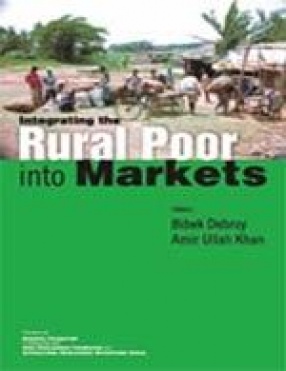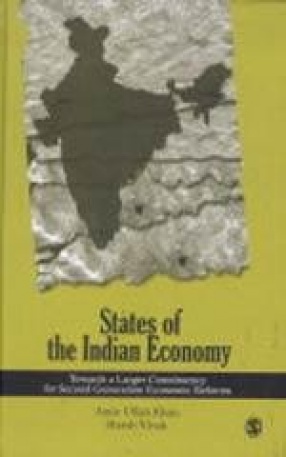
Showing all 3 books

As the editors Bibek Debroy and Amir Ullah Khan put it: Agriculture may account for only 25% of GDP. But 70% of India's population earns a living from the rural sector. If there is a perception in India that liberalization has been anti-poor and pro-rich, that is largely because the agricultural cum rural sector has been untouched. . . . After the recent (2004) elections, negative expectations about reforms concern privatization and labour market reforms. On the ...

India today occupies the centre stage in the global arena, and economists the world-over are bullish on India's unprecedented economic growth in the last ten years and its growth prospects for the future. The large pool of human capital--a young, talented and well-educated workforce--is one of the major drivers of economic growth in the country. Rapid strides in knowledge-based industries, especially information technology, rejuvenation of the manufacturing ...

This book analyses the contemporary state of affairs at the World Trade Organization (WTO) and India's negotiating agenda at its various forums. The WTO is important for all the countries as more than 96 per cent of world trade is controlled by bodies affiliated to it. The book identifies areas in the WTO agreements that require systematic reforms. It also discusses the negotiating history of GATT/WTO, especially after the conclusion of the WTO negotiations in ...
